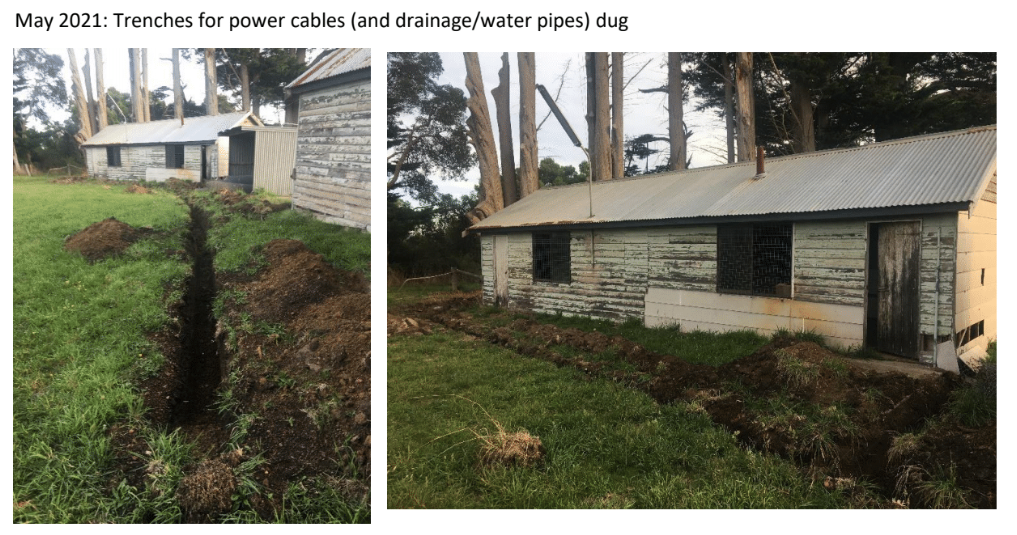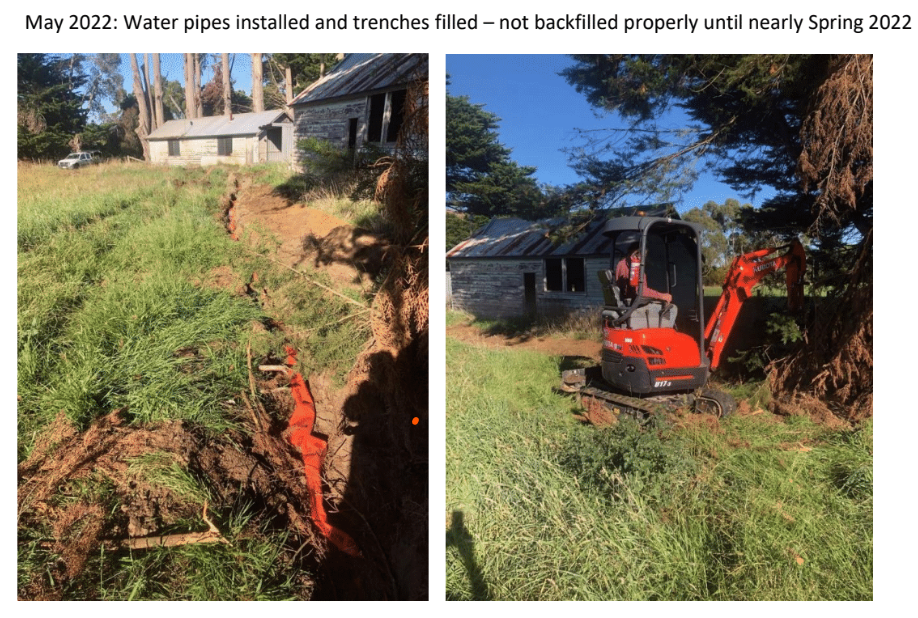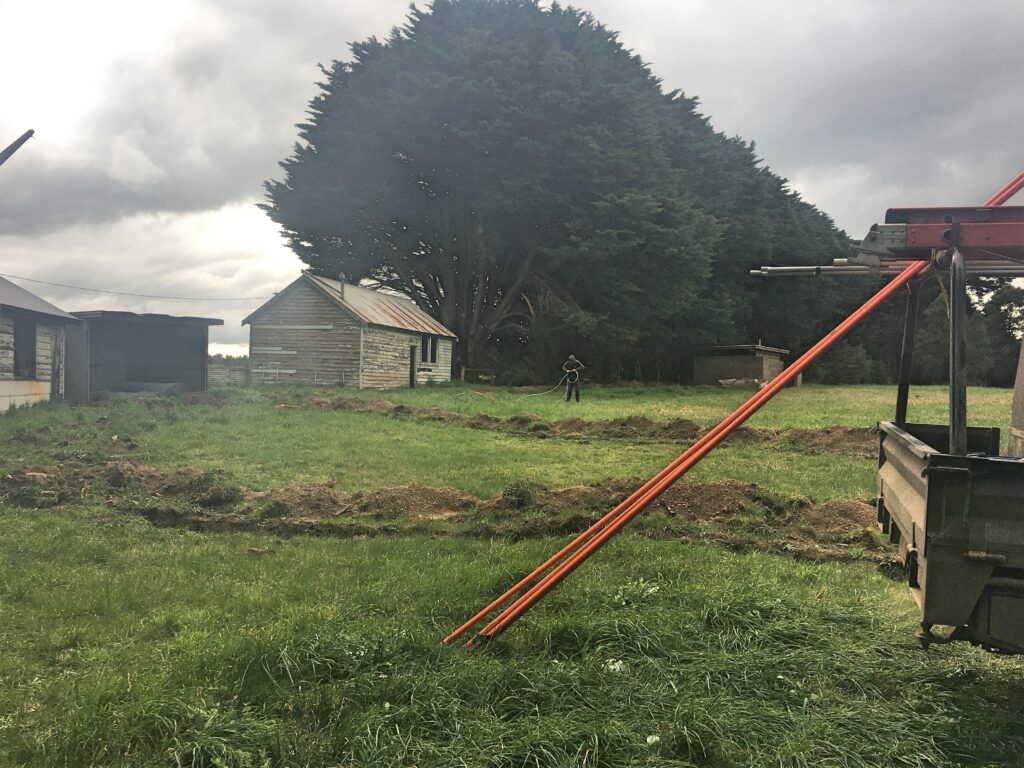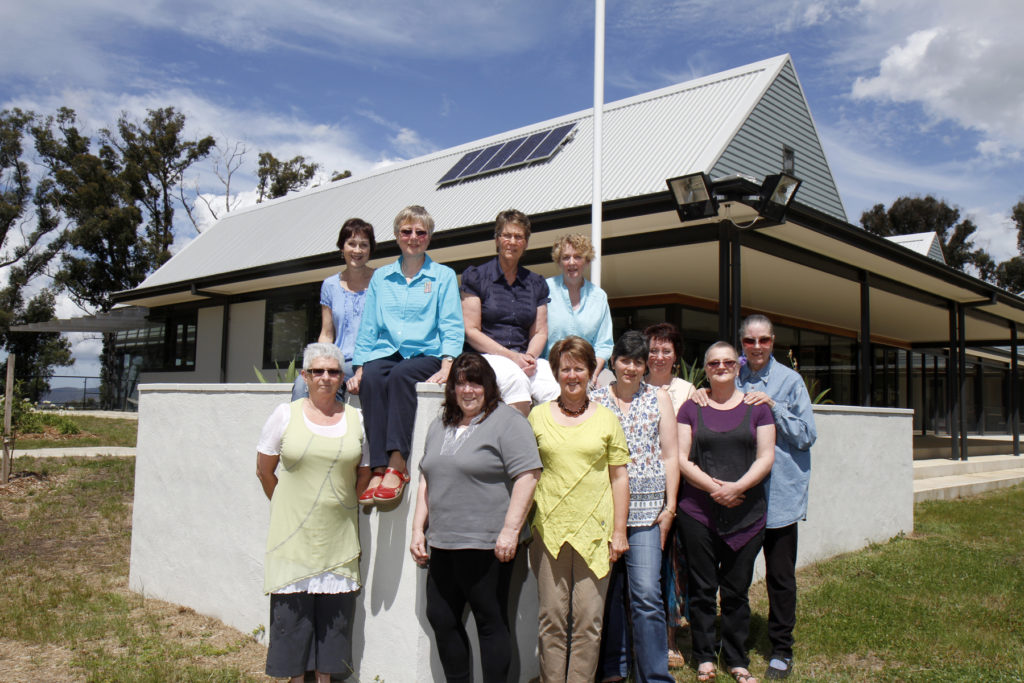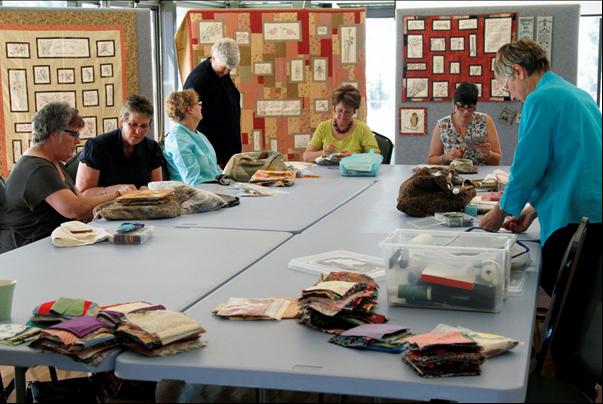Foundation for Rural & Regional Renewal (FRRR)
Community meeting places are integral to the social fabric of society. In the small dairy community of South Purrumbete in Victoria, the local school closed in 1993 and in the following decade, the local hall and churches were sold; the footy club folded; and the community lost a vital space to come together. After an extended period of time of neglect and inactivity, the Recreation Reserve building, which was the last remaining community asset in this small dairy community, was set to be sold.
However, the community united and re-established the South Purrumbete Recreation Reserve (SPRR) committee of management in 2015 to retain ownership, with a vision to create a vibrant community hub. Since then, they’ve undertaken works to remove hazardous trees and control weeds, as well as fencing and revegetation of the Reserve.
The next stage of their efforts to strengthen the community was to embark upon the the rejuvenation of the disused but much sought after Reserve as a community hub, and this firstly involved upgrading the electrical infrastructure. This was necessary to ensure safety and reliability and the availability of essential services such as toilets, water and power to potential users, and to enable further restoration works to continue.
The committee received a 2020 Gardiner Dairy Foundation Community Grant for $4,870 for the designated electrical works, just before the global pandemic hit. Despite the challenges caused by a shortage of contractors due to ongoing lockdowns, this small group of fewer than five volunteers engaged with local landholders, businesses and the wider community, and commenced the massive task of reinvigorating this heart of the local community. Trenches were dug, electrical upgrades took place and basic building drainage issues were addressed.
While the physical infrastructure upgrades could be considered the whole point of the project, the ultimate aim of the project is to build resilience by improving infrastructure at a local meeting place that will facilitate community connectedness. Community support for the project is gaining momentum, with the long-lasting and significant benefit from this small infrastructure project clearly evident in the South Purrumbete community. The consequential coming together of community volunteers has stimulated further plans to upgrade septic systems and renovate the grounds further to meet their ambitious goal of restoring the Reserve buildings and grounds to a safe and suitable condition to enable large gatherings at future community events like markets.
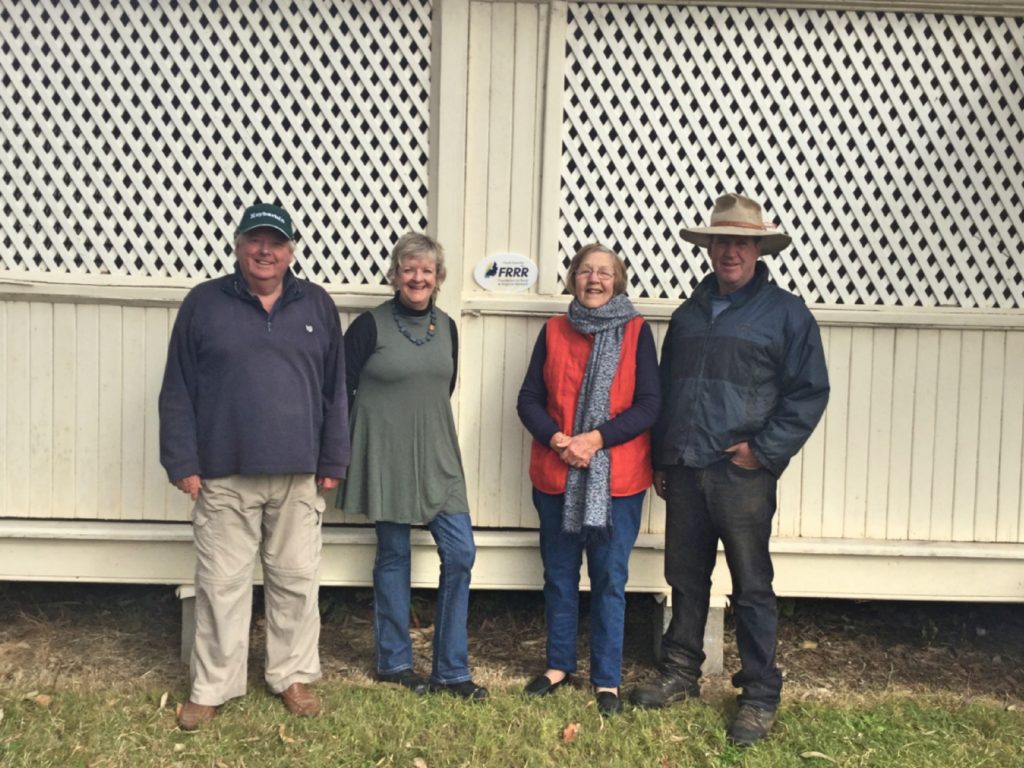
Nestled in the heart of the bush, halfway between Byron Bay and Coffs Harbour in NSW, lies the rural community of Baryulgil.
In the heart of Baryulgil is the Community Hall, located in the town square. The hall has stood for almost 90 years, and been used for social gatherings and fundraisers throughout the years.
With a population of fewer than 100 people, the community hall provides a much-needed place for local residents to gather. In recent years, the hall had fallen into disrepair, with dry rot in the walls, a leaking ceiling and broken windows.
The team at Baryulgil Charity Sports Club applied to FRRR’s Small Grants program, and received a $5,000 grant funded by The Yulgilbar Foundation, to complete maintenance works to ensure the local community could enjoy the hall for many years to come.
This grant enabled the Club to replace the damaged walls, remove dangerous stairways and doors, replace rusted gutters, and purchase heritage-colour paint to restore windows and doors that had been damaged by water.
Along with the popular social events and fundraisers, the hall can now be used by emergency services during bushfires, acting as a local hub for the NSW Rural Fire Service. The bulk of the project was completed in late 2019, with additional work delayed by COVID-19 to be completed in the near future.
Freestone is a small, farming community located west of Brisbane, in Queensland. The town has been hard hit by ongoing drought, job losses and declining mental health and wellbeing among community members.
In 2015, the Freestone Memorial Hall began holding ‘Friday friendlies’ to bring community members together for social catch-ups. These events were particularly important as the drought worsened in 2018, with the economy slowing down due to layoffs. As times got tougher, the attendance at the Friday Friendlies increased.
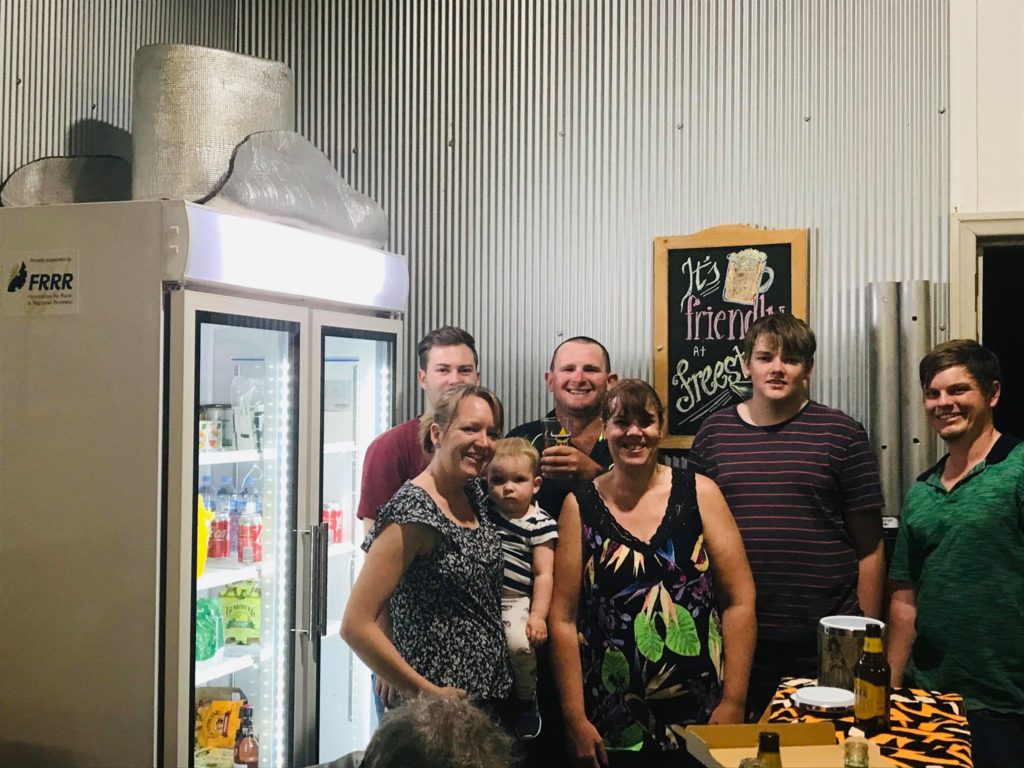
Because of the importance of this social event, the Freestone Memorial Hall wanted to ensure the space was safe, could host the growing number of visitors, and had the updated facilities needed to ensure everyone could come together for a good time.
Freestone Memorial Hall was awarded a $10,000 grant, funded by the Australian Government, and administered by FRRR as part of the Tackling Tough Times Together Grant Program, to upgrade their facilities, install a data projector and integrated PA system and undergo renovations to fix an unsafe floor.
“Since installations and repairs have been completed, we have run five Friday Friendlies with increasing numbers at each Friendly. We are now averaging 50 people per night with a broad cross section of the community coming together to share their experiences of the month. This has proved particularly important as the drought continues,” Simon Goddard, a volunteer committee member for the Hall, told FRRR.
“We are even getting people back to the Friday Friendlies as they hear of improved facilities and increasing numbers. It is becoming self-perpetuating and has a very promising future.”
The new projector has been a popular addition for many locals, who enjoy getting together to watch live sports and tournaments.
The grant also allowed the community group to purchase a fridge, which not only keeps their drinks cold for events, but generates some income for the Hall. This modest but sustainable income makes it possible for the community to host bigger and better events together. So far, the Friday Friendlies continues to be a success for the Freestone community, with many looking forward to attending the gathering every week.
After the Glenburn pub was destroyed in the 2009 Victorian Bushfires, the local hall became a crucial hub for community cohesion in Glenburn. The Hall is now the place where locals gather, share experiences and welcome new residents, and the Progress Association hosts monthly dinners to build this sense of place and connection.
The Glenburn Hall & Progress Association Inc is a not-for-profit organisation that oversees and looks after the Glenburn Hall. The Association’s main aim is to provide the community with a meeting place that caters for all ages and walks of life.
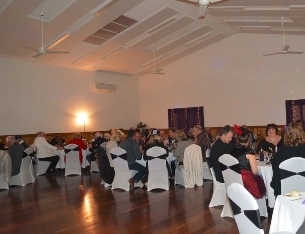
The hall is used for community events, CFA information evenings, Neighbourhood Watch, a Craft Club and a Garden Club, among other things.
Resounding sound
In mid-2014, 30-40 people were attending a community gathering each Friday night, and monthly dinners on the third Friday of each month attracted 70-80 people. However, the Progress Association had noticed a decline in attendance at activities based at the community hall, and discovered that the reason why was because many ageing residents were having difficulty hearing because of the hall acoustics.
The Glenburn Hall Committee engaged acoustic engineers who established that the pitch in the roofline of the hall was creating a funnel effect, and that by placing sound absorbing panels on the roof, the issue would be rectified. By improving the hall acoustics, the Committee has removed a barrier to participation for older residents, however other benefits include improved sound for music and films, which help to increase financial viability.
The community now has access to a community meeting place that is a comfortable environment for all age groups.
The Callignee Community Hall is now benefitting from the installation of a number of cupboards that have improved the overall utility of the available storage space in the Callignee Hall, thanks to a dedicated and determined group of women.
The Callignee Stitch & Chat group was formed in May 2009 as a response to a need for community groups to provide opportunities for local women to gather together after the bushfires. It created a socially and emotionally supportive environment where women could share experiences while participating in craftwork. Stitch & Chat now has a day group with 18 regular attendees and an evening group with 10, and numbers are still increasing.
Stitch & Chat also functions as a forwarding service for items of community interest, government and other assistance programs, and other items of interest to the community. It is a conduit for discussion of local issues and for providing feedback to government authorities. Another craft group concentrating on card making has also grown from the group. At the present time the group is run by a Volunteer Coordinator and plans to become incorporated in the next 12 months to ensure its sustainability.
A Victorian Bushfire Regional Donation Account was set up in 2009 by Rotary International using FRRR’s DGR status, and funding of $5000 was granted to the Callignee Community Hall Committee Inc in May 2012 to support the Callignee Stitch & Chat group to purchase five two-door and one single door freestanding cupboard units and multiple storage containers. The cupboards have shelving and divisions that have allowed the group to organise their equipment, which they have worked together to sort, categorise and label to ensure it is now easily located and neatly stored. Their equipment, which includes books, magazines, patterns, patchwork and embroidery supplies, sewing machines and overlockers, was previously stored in a communal area in 50 litre plastic tubs stacked five high, creating quite a safety hazard.
With materials now sorted and readily accessible, the group has increased productivity and successfully completed a number of community projects including:
- 12 quilts for donation to charity and support groups;
- 12 knitted shawls donated to aged care facilities in the region;
- 20 knitted beanies for inclusion in Police ‘comfort bags’ for presentation to children who have been removed from their family environment for various reasons;
- 13 patchwork bags presented to victims of the Queensland floods; and
- Work is underway on oven mitts for the victims of the Tasmanian fires.
With their materials and equipment organised and easily accessible, the group can now focus on their crafty productivity.

